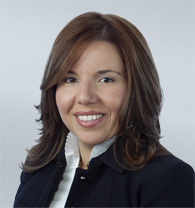
The optional practical training (OPT) program allows students here on an F-1 visa (who have either graduated or been pursuing a degree for 9 months) to work in their chosen field of study for one year. In 2008, the U.S. Department of Homeland Security (DHS) promulgated an interim rule that allowed F-1 students with Science, Technology, Engineering, and Mathematics (STEM) degrees (and working for employers enrolled in E-Verify) to be granted a 17-month extension of their employment authorization (for a total of 29 months of employment eligibility). The rule also eliminated the requirement that DHS grant “cap gap” protection via a notice in the Federal Register by making cap gap protections automatic, and permitted F-1 students to apply for OPT during the 60-day period after graduation.
On August 12, 2015, Judge Ellen Segal Huvelle of the U.S. District Court for the District of Colombia dealt a blow to employers by vacating the DHS’s 2008 interim rule expanding STEM OPT program in Washington Alliance of Technology Workers v. U.S. Department of Homeland Security, Civil Action No. 14-529 (D.D.C. Aug. 12, 2015).
However, realizing the disruption that immediate implementation of the court order would cause on employers, Judge Huvelle stayed the court’s decision until February 12, 2016. In response to Judge Huvelle’s ruling and pending vacatur, DHS published a new proposed rule in the Federal Register yesterday. The proposed new rule is entitled “Improving and Expanding Training Opportunities for F-1 Nonimmigrant Students with STEM Degrees and Cap-Gap Relief for All Eligible F-1 Students” and is subject to comment period that is scheduled to end on November 18, 2015.
Once the comment period expires, DHS will review and analyze the comments and has 30 days to finalize the rule. Thereafter, DHS will then publish the final regulations in the Federal Register, but is required to wait 60 days for the rule to become effective and be implemented. It is speculated that DHS will be hard pressed to meet the February 12, 2016 deadline in Judge Huvelle’s order and will be required to ask Judge Huvelle to suspend or extend the deadline.
Notwithstanding, the take-away for F-1 students currently authorized to work under an approved STEM OPT extension is that they should be maintain their F-1 status and employment authorization; DHS should continue to accept and adjudicate application for STEM OPT extension until further guidance is issued; and F-1 students are also permitted to continue working for an addition 180 days after their initial OPT work permit expires as long as an extension has been timely filed.
Below is a general summary of the changes to the STEM OPT Program under the new proposed rule:
- Increases the STEM extension period from 17 months to 24 months;
- Provides for Cap-Gap extension for F-1 students with timely filed H-1B petitions;
- Modifies STEM definition and eligible categories;
- Adds requirements that employers establish and implement formal mentoring and training programs;
- Provides safeguards for U.S. workers in specific fields;
- Allows F-1 students to use previously-obtained STEM degree to qualify for a STEM extension;
- Requires school accreditation and mandates employer site visits;
- Establishes a reporting requirements for STEM OPT students; and
- Establishes compliance requirements relating to unemployment.
Continue to check back with us for updates on the status of this important immigration issue. F-1 students with pending or upcoming applications for STEM extensions should keep a close watch on this issue in the coming months.
Our firm is available to assist with your immigration needs. For more information, please contact Maria del Carmen Ramos at 813.227.2252 or mramos@slk-law.com.
